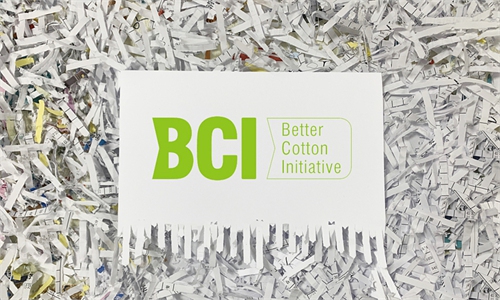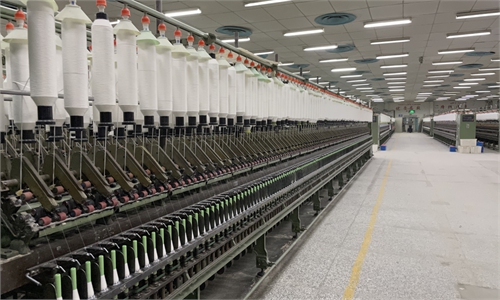Exclusive: How US forces ‘Xinjiang forced labor’ narrative on enterprises, industry agencies
Rough trade
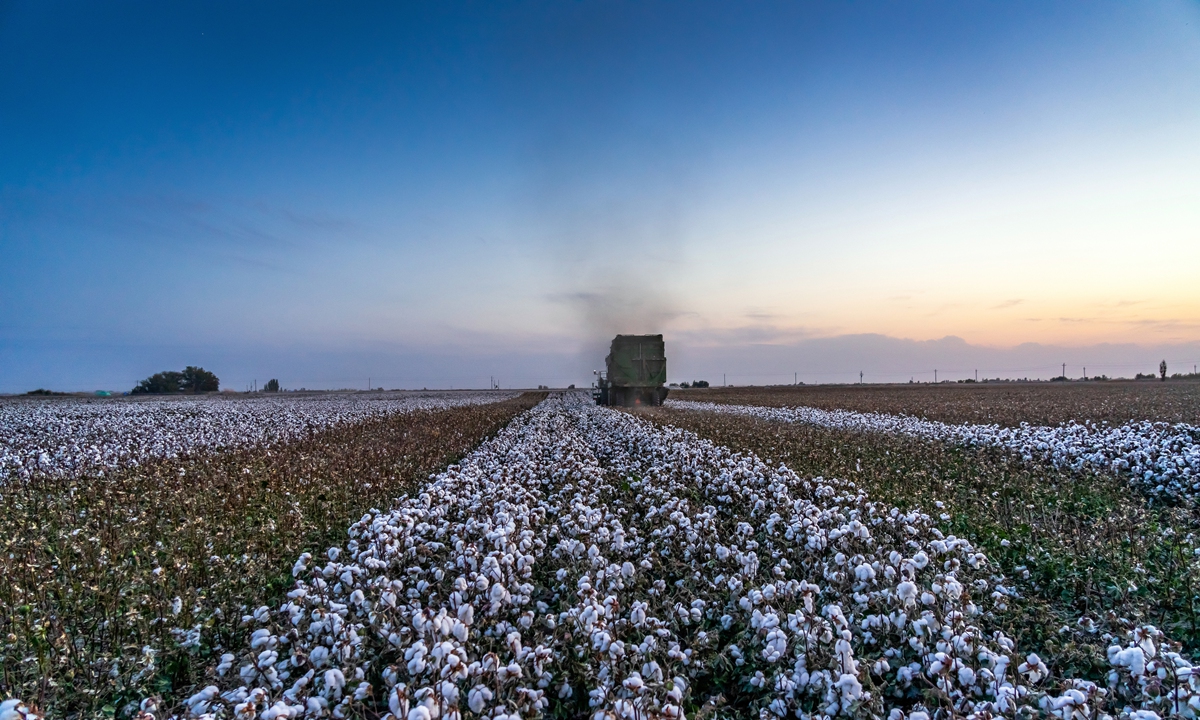
A cotton field in Manas County, Xinjiang Photo: VCG
Using the pretext of "forced labor" to pressure and sanction other countries' companies has been an old trick by the US, which is now exerting extreme pressure on companies in cotton-related industries in Northwest China's Xinjiang Uygur Autonomous Region.Apart from creating lies about "forced labor", anti-China forces in the US and the West have also released reports, held hearings and taken other measures to slander China's Xinjiang policies. They have also tried to draw US and European companies, including Adidas and Nike, into their campaign. They have also persuaded the Better Cotton Initiative (BCI), a nongovernmental organization with head offices in Geneva and London that aims to promote better standards in cotton farming, to suspend licensing in China's Xinjiang region, even though it contradicts the results of its own Shanghai office's investigations.
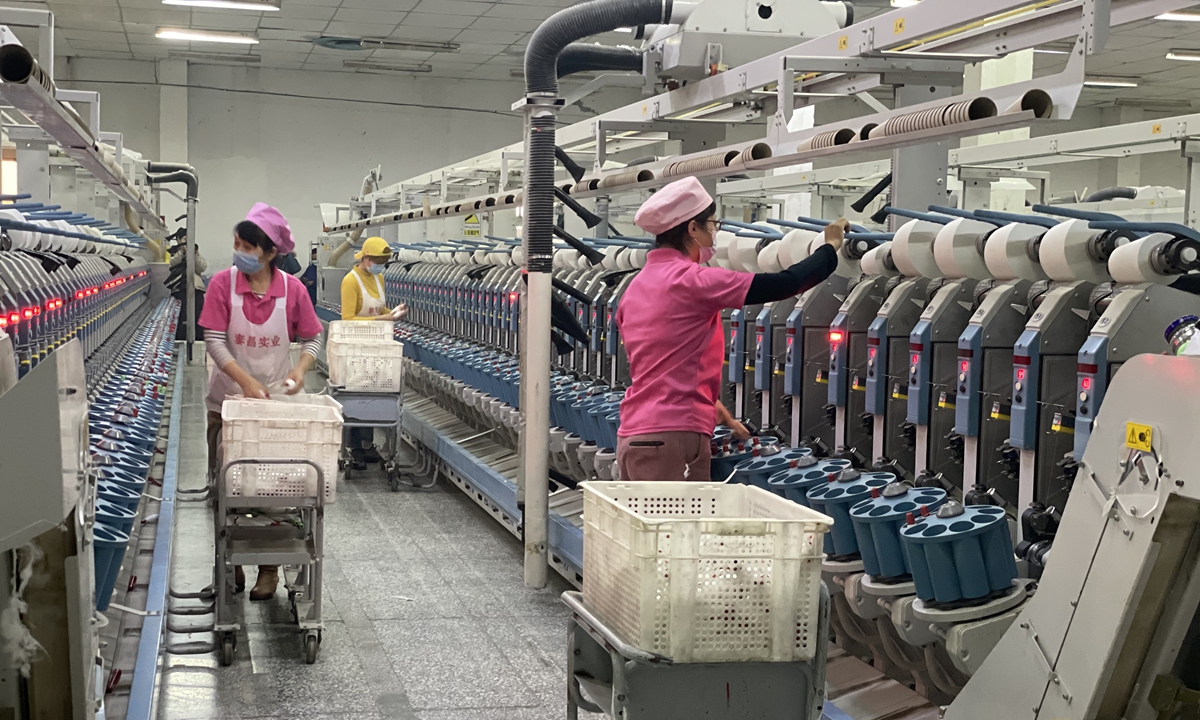
Workers in a cotton company in Xinjiang Photo: Liu Xin/GT
How the lies beganThe current systematic slandering of China's policies in Xinjiang started with the hyping of the education and vocational training centers in the region. The Information Office of China's State Council released a white paper in August 2019, explaining that the training centers had been set up to root out terrorism and extremism, and that trainees' rights and interests were protected. Since then, anti-China forces in the West and the US began to create "new weapons" - the issue of "forced labor" - to continuously defame China's Xinjiang, analysts said.
The Associated Press released a report on December 18, 2018, claiming that after looking into the sources of Badger Sportwear, a leading supplier in Statesville, North Carolina, and Hetian Taida Apparel in Hotan Prefecture in southern Xinjiang, it found that many products exported to the US were made through "forced labor."
The AP report gave the US more excuses to interfere with China's policies in Xinjiang. US Customs and Border Protection then released a statement, saying that the AP report "for the first time appears to link the internment camps identified in Western China to the importation of goods produced by forced labor by a US company."
On December 2, 2020, the US Homeland Security Department announced it would seize all cotton and cotton-related products from the Xinjiang Production and Construction Corps (XPCC) at all US ports, as the XPCC may be using "forced labor."
While the media pushed the "forced labor" issue and the US government took its measures, NGOs and anti-China politicians appeared to further burnish these lies. In January 2020, the US Fair Labor Association (FLA) released a report titled "Forced labor risk in Xinjiang, China."
In March, the Australian Strategic Policy Institute (ASPI) released a report titled "Uyghurs for sale," claiming that Uygurs were being forced to work in factories in the Xinjiang region and other cities across China.
The Global Times has learned that in response to questions on "forced labor," the Shanghai office of the BCI and Chinese yarn producer Huafu Fashion, a company that has frequently appeared in Western media's reports, organized investigations into the issue.
The "Huafu" brand has been around for 27 years and the company started doing business overseas 25 years ago, and has dealings with more than 900 BCI members. When the hyping of the "forced labor" issue began in March a2019 and some Western media, including the Wall Street Journal, claimed that Huafu had been involved in "forced labor," the company responded by taking active moves, including inviting a foreign third-party investigation team to carry out a survey of its factories in Xinjiang. Nothing abnormal was reported.
The Global Times has also visited companies in cotton-related industrial chains - from cotton plantations and ginning factories to yarn plants and garment factories, and found nothing pointing to the use of "forced labor." The entire industrial chain in Xinjiang has achieved mechanization, requiring fewer workers in recent years.
BCI and 10 of its members that are textile companies in Xinjiang also conducted surveys to determine if its affiliated factories were involved in "forced labor." The result was No.
The Global Times has learned that BCI's surveys in Xinjiang were carried out by its Shanghai office, which has direct communications with companies in Xinjiang. The investigations included field surveys of companies in Xinjiang, online surveys, organizing companies to complete self-evaluation forms and a third-party evaluation.
Wu Yan, head of the BCI Shanghai office, led a team to Xinjiang and confirmed with the Global Times that the office has regularly sent personnel to evaluate their program with Xinjiang companies for years and found nothing that violated "decent labor" principles.
In May 2020, Wu and her colleagues went to visit four cotton-related companies in the Bayingolin Mongolian Autonomous Prefecture and Urumqi to talk to farmers and employees about their living and working environment, salaries and accommodation. They found nothing that bore any relation to what some Western media claimed was "forced labor" and gave affirmative evaluations of these companies' contributions to local communities.
Based on what they learned in Xinjiang, the Shanghai office submitted several reports to the BCI head office, reaching the conclusion that "no forced labor" related issues have been found.
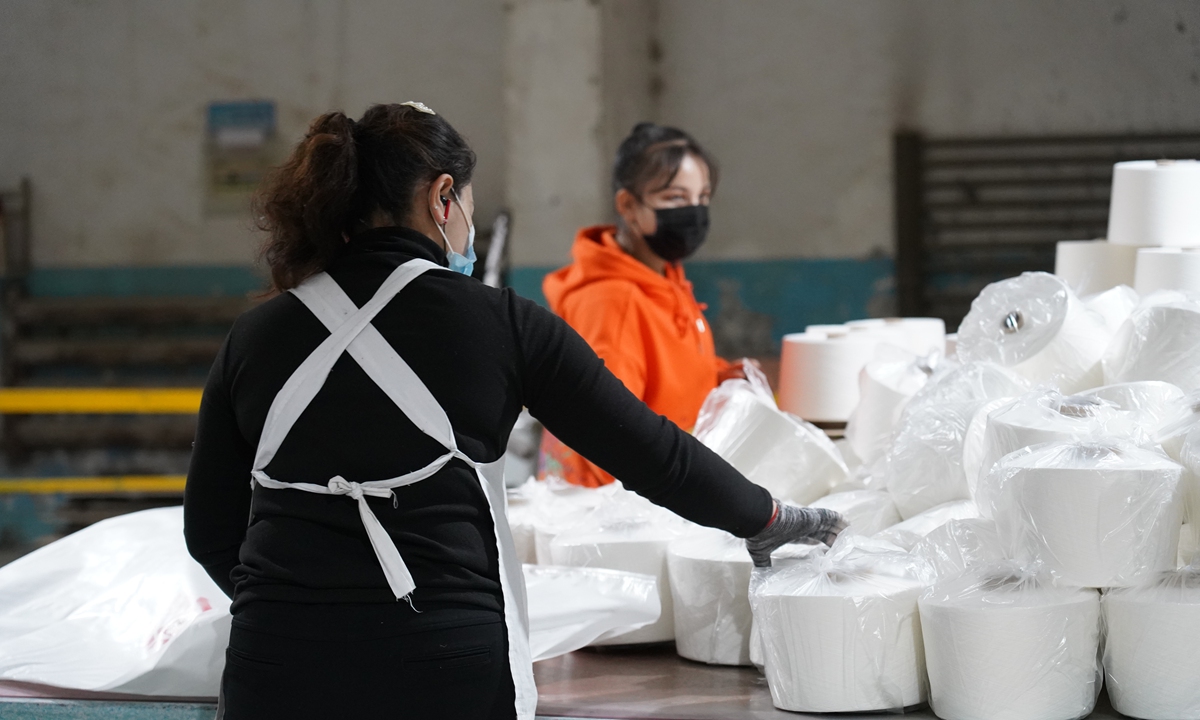
Workers work at a processing workshop of a cotton comnpany in Xinjiang in December 2020. Photo: Yang Ruoyu/GT
'Conclusion' before investigationHowever, the BCI head office seemed less than "satisfied" with the results. The head office also invited Verité, an organization that "provides businesses with tools that help to eliminate labor abuses," to investigate cases in Xinjiang.
The Global Times has learned from sources that members of Verité who were responsible for the "investigation" never went to Xinjiang to carry out any surveys. Instead, they obtained all their information by searching online and citing information from the US Congress, anti-China forces, including the World Uyghur Congress, and biased US-based organization Human Rights Watch. The Verité report called this "flawless data," thus reaching "flawless" conclusions.
Under great pressure from the US, some international companies were forced to pick sides in the "forced labor" stunt. The Global Times has learned that many BCI members, including Adidas and H&M, have organized investigations in Xinjiang. H&M also said in a release that although they did not purchase in Xinjiang, they went to factories in Aksu Prefecture and found no "evidence" of "forced labor."
After that, H&M came under pressure from the BCI head office. On September 15, 2020, the US Customs and Border Protection Bureau announced a ban on imports from five Chinese companies and a manufacturer over "forced labor." H&M then announced it would "phase out our indirect business relationship" with Huafu Fashion on September 16, 2020.
The US-based FLA has more than 100 member companies, including Adidas, Nike and Vetta. China is Adidas' second largest market globally, with sales in the country making up 20 percent of its global market. China is also Adidas' first market to see a recovery during the COVID-19 pandemic.
Sources told the Global Times that after the ASPI report, Adidas sent two groups of people to related companies in Xinjiang but did not release the results, as they went against the BCI head office's findings.
On March 12, 2020, the New York Times released a report titled "US lawmakers propose tough limits on imports from Xinjiang" and noted that the Fair Labor Association, citing "credible reports of forced labor and other violations of fundamental human rights in the Xinjiang region," had asked its affiliates to investigate and identify alternative sources. Nike, Patagonia and other member companies answered FLA's call to cut purchases of Xinjiang products.
From March 2019 to February 2020, Huafu attended several online meetings of the BCI head office and reiterated that no "forced labor" existed in its companies. Wu Yan of BCI's Shanghai office also confirmed Huafu's findings.
None of this changed the attitude of the BCI head office.
On October 21, 2020, BCI released a notice on its website, announcing that it had taken the decision to cease all field-level activities in the region and had suspended licensing and assurance activities in Xinjiang.
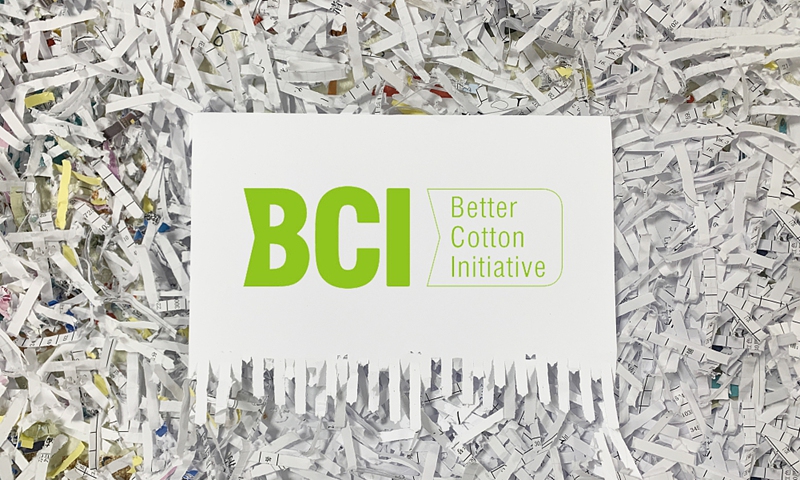
BCI Photo:VCG
Source of biasWhy is the head office of the BCI so biased against China's Xinjiang? Sources who are familiar with the matter told the Global Times that out of the 10 BCI Council members, Huafu is the only one from China, and apart from one member from the BCI office, the other eight Council members are from the US. As membership fees are the only source of income for the BCI, companies from the US, including Levi's, have a greater voice and influence over the BCI Council.
The US Agency for International Development has also been found to be supporting and participating in BCI activities.
The Global Times has learned from sources that due to the tough attitude toward China and the BCI chairman's preference for the US, Huafu was forced to resign from the BCI council.
The executive group is headed by CEO Alan McClay, along with COO Lena Staafgard and directors Damien Sanfilippo, Alia Malik and Amy Jackson.
Influenced by the council team, the BCI head office set up a special team on April 1, 2020 to investigate "forced labor" in Xinjiang, which included 11 representatives from member retailers, consulting companies and civil organizations, such as Shelly Heald Han from the FLA, Komala Ramachandra from Human Rights Watch, and Allison Gill from International Labor Rights Forum.
Many of these people and organizations have engaged in anti-China activities. The investigation team also worked further with human rights organizations from the US and the UK and held meetings with BCI's leading team, exerting continued influence on BCI's judgements on the issue of "forced labor."
On June 3, 2020, BCI held a meeting with civil society organizations. In addition to members of the investigation team, the meeting was also attended by Louisa Greve, who is responsible for the Uyghur Human Rights Project (UHRP), a main project of the US-backed World Uyghur Congress. The project was funded by the National Endowment for Democracy (NED), which granted the UHRP a "whopping $1,244,698 between 2016 and 2019," according to the US-based news outlet The Grayzone.
The Global Times has learned from sources that the decision to suspend licensing in China's Xinjiang region was made during the meeting. The investigation team also required that any human rights organizations that want to know about Xinjiang have the right to obtain information from BCI, and that BCI should tell the public that none of its decisions were related to the human rights organizations.
"Currently, BCI's activities in Xinjiang have been suspended, which means it has lost nearly 90 percent of its business in China - it is cutting off its own limbs," an insider who requested anonymity told the Global Times.
Although BCI has continuously made compromises to the US and helped to burnish the lies of "forced labor," the US has not softened its attitude in pressuring the organization. Since 2019, the US media has continued to mention BCI in its reports by questioning its credibility in setting criteria for cotton spinning industries.
In July 2020, the US Department of Agriculture established the US Cotton Trust Protocol, and asked all US companies to join the system. By using the excuse of "violating" US sanctions, the US also filed a lawsuit against BCI, as it was eager to take the lead in the making of rules in the international cotton and textile industries.
"BCI may currently remain the main player in making sustainable cotton standards, but the US is eroding its global stake," the anonymous insider said.

